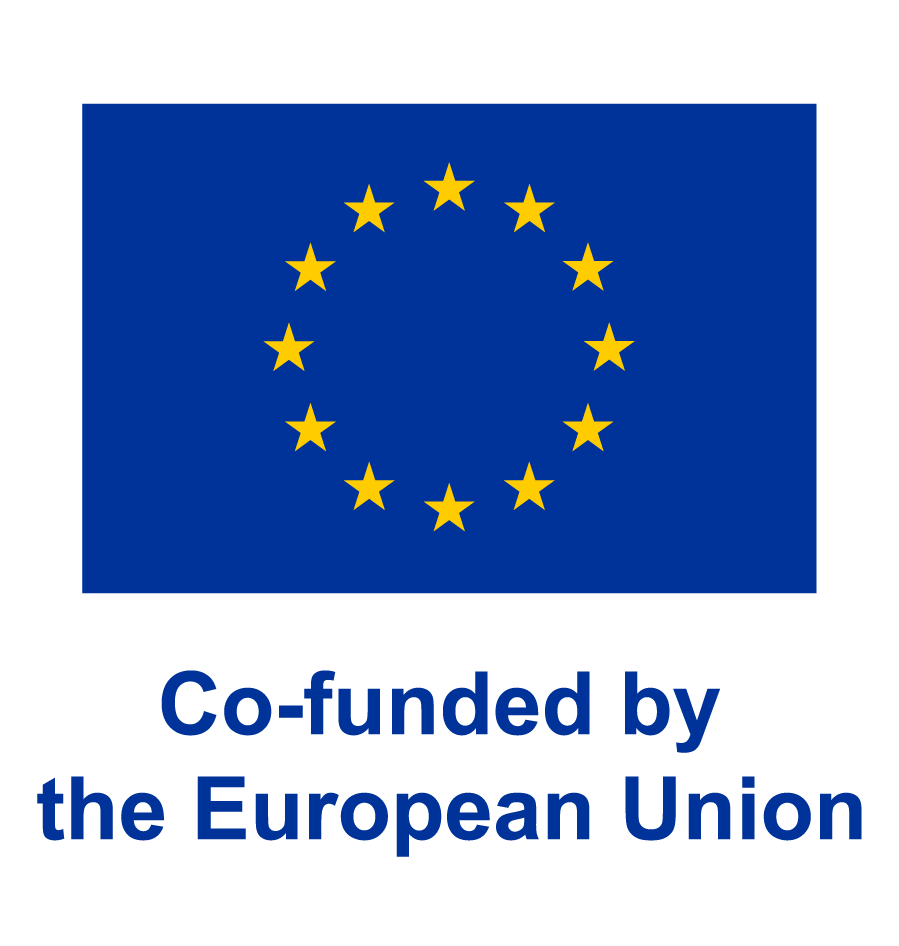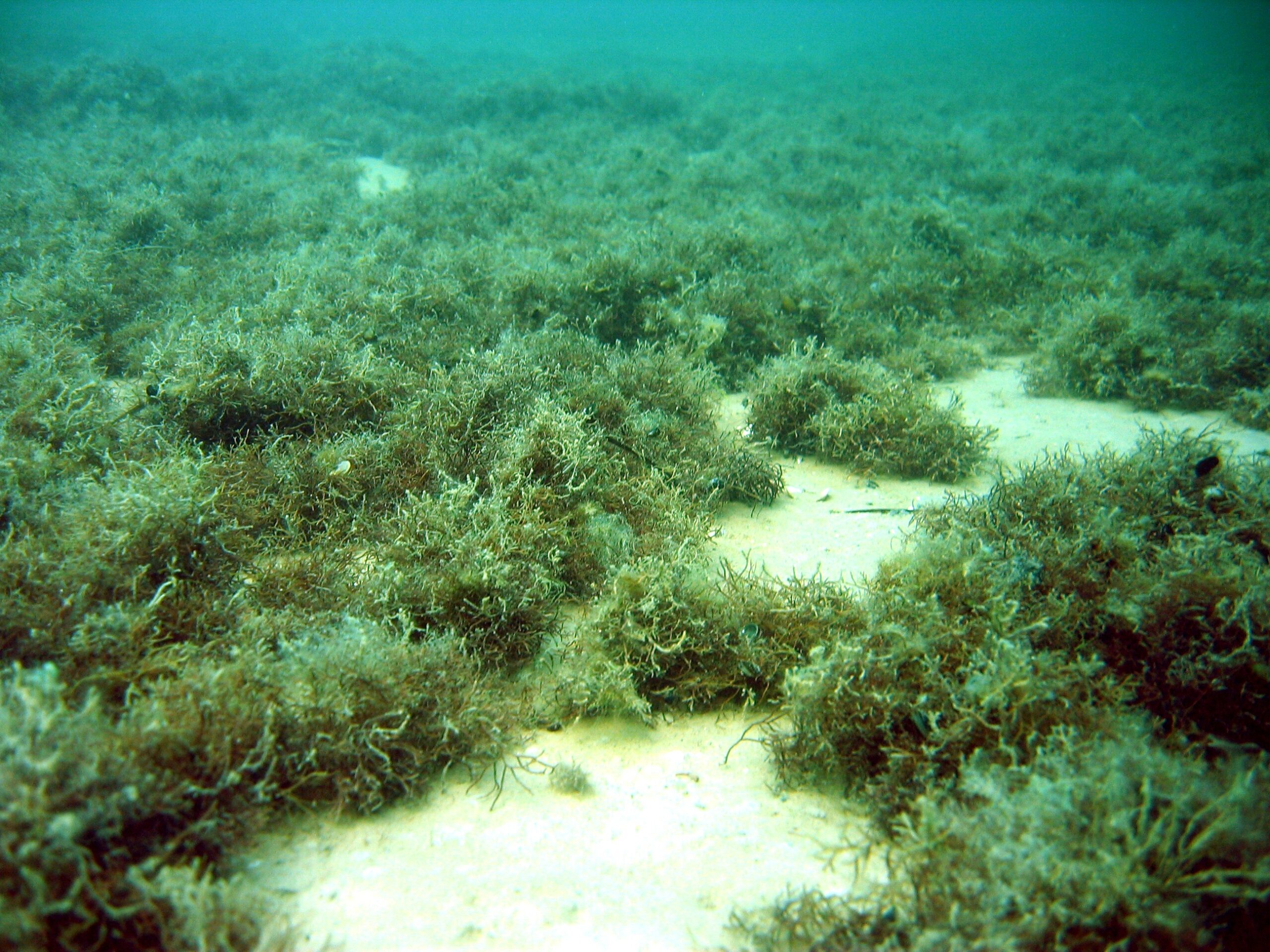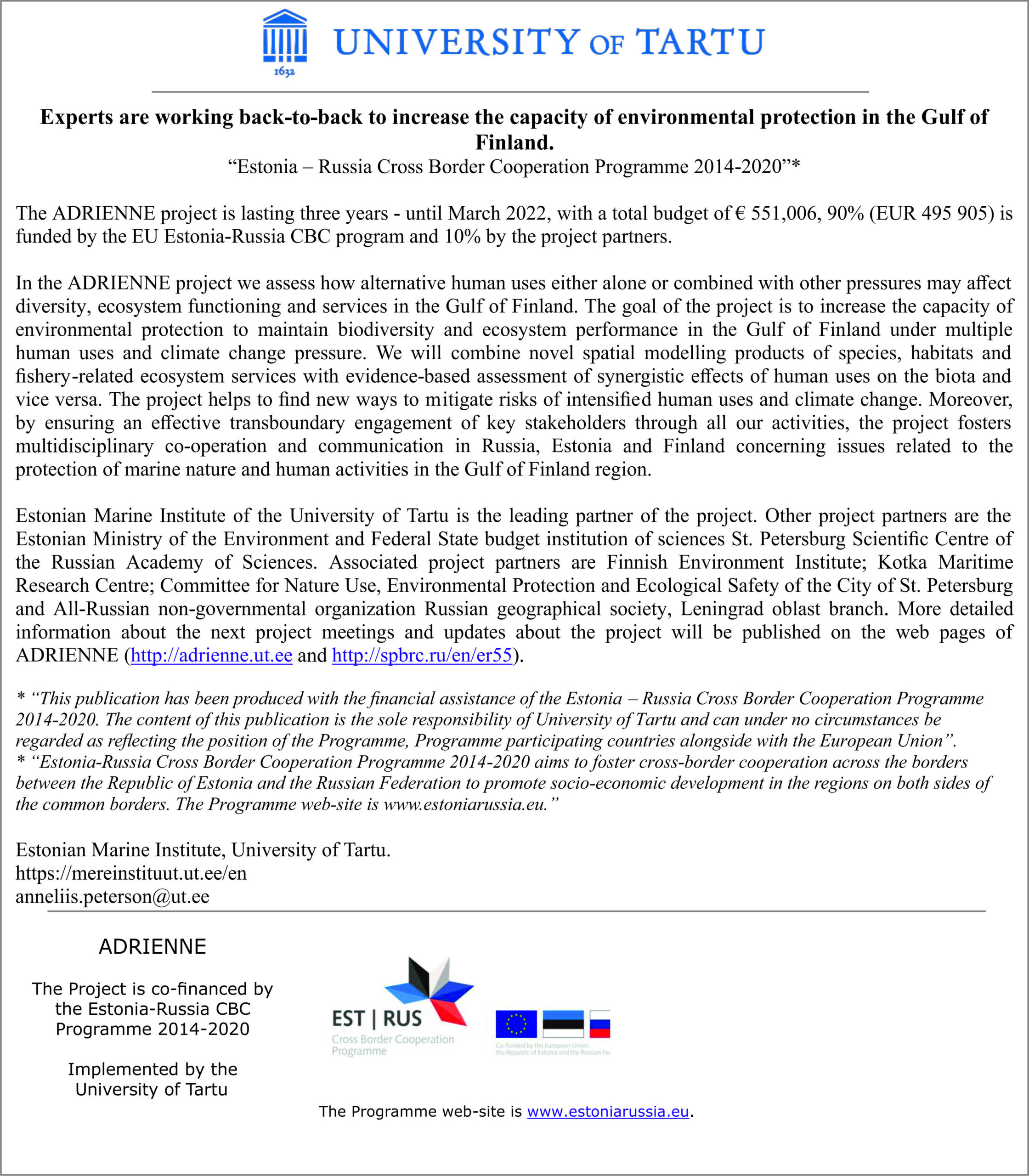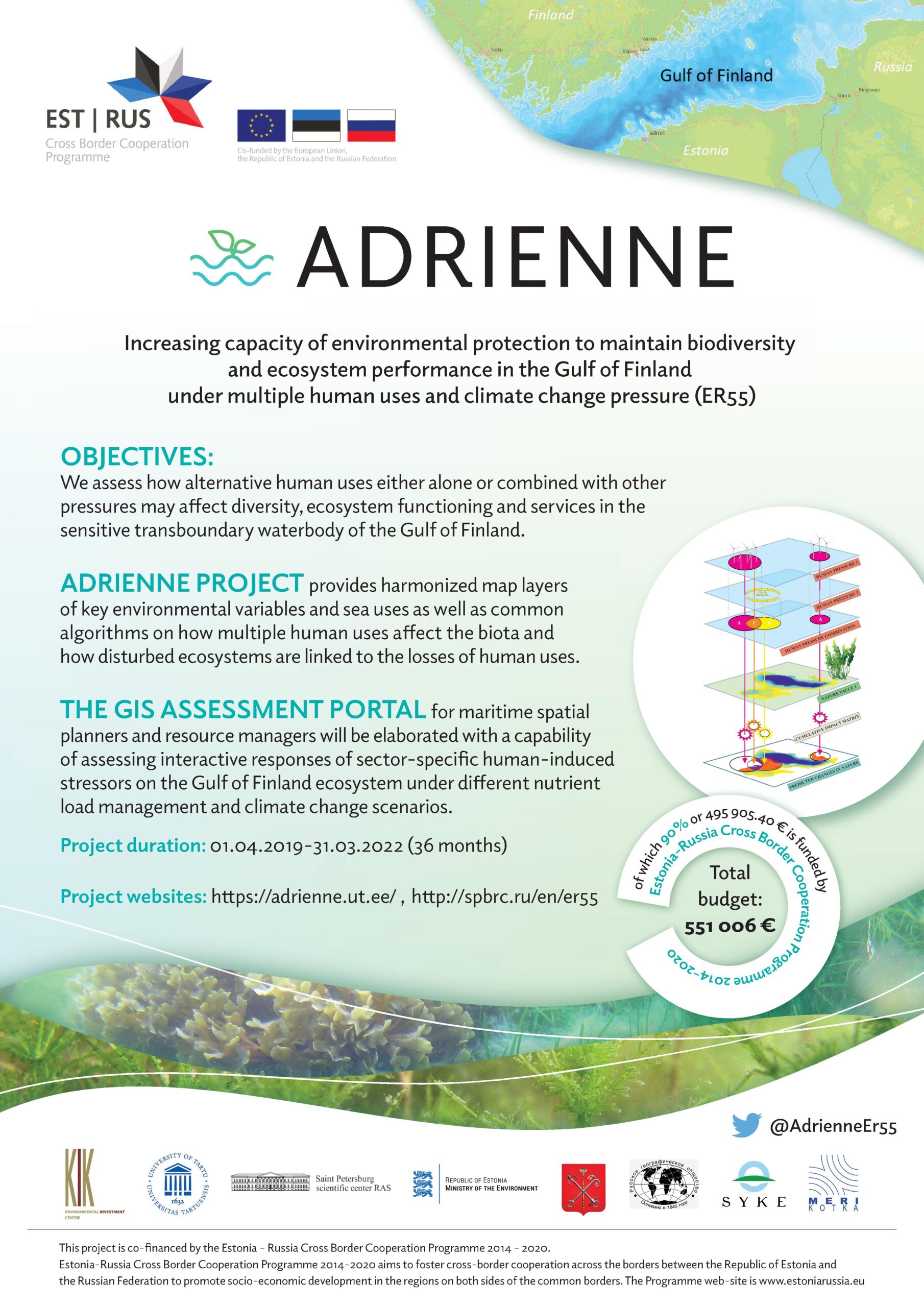
ADRIENNE

Within ADRIENNE we analyse how alternative human uses may affect diversity, functioning and services ecosystems provide in the Gulf of Finland. By comparing different planning scenarios we help finding new ways to mitigate risks of intensified human uses and to assure the sustainability of the marine environment.
Project ADRIENNE+ (ER188) is implemented under the European Neighbourhood Instrument and co-financed by the European Union. This website has been produced with the financial assistance of the European Union. The content of this website is the sole responsibility of University of Tartu and can under no circumstances be regarded as reflecting the position of the Programme or the European Union.
DG REGIO website https://ec.europa.eu/regional_policy/en/
The idea to assess cumulative impacts of human use on the natural environment in the Gulf of Finland is linked to increasing maritime activities and undermanaged coastal resources – now threatening the sustainability of the marine environment and maritime-based economies. Rapidly growing demand for shipping, fisheries, energy sector and aquaculture provide some relevant examples of human pressures.
Within ADRIENNE, we will combine novel spatial modelling of species, habitats and fishery-related ecosystem services with expert-based assessment of interactive effects of human uses on natural environment. All information will be gathered and summarized in a publicly accessible geospatial portal (GIS). Created portal has a capability to assess interactive responses of various human-induced stressors on the Gulf of Finland ecosystem under different nutrient concentrations and climate change scenarios. Designed web portal will be a state-of-the-art tool built on harmonization of big data, machine learning and scientific expertise.
Ultimately, the project will target limitations of within current maritime spatial planning and resource management. The improved biodiversity of joint natural assets will be achieved by quantifying and accounting for the benefits of natural capital, increasing awareness for environmental protection and smart planning. By ensuring an effective transboundary engagement of key stakeholders through all our activities, the project fosters multidisciplinary co-operation and communication.
Estonia-Russia Cross Border Cooperation Programme 2014-2020 aims to foster cross-border cooperation across the borders between the Republic of Estonia and the Russian Federation to promote socio-economic development in the regions on both sides of the common borders. The Programme web-site is https://www.estoniarussia.eu
Leading partners:
Estonian Marine Institute (EMI), University of Tartu (UTartu), project coordinator Jonne Kotta jonne.kotta@sea.ee
Federal State budget institution of sciences St. Petersburg Scientific Centre of the Russian Academy of Sciences ( (Федеральное государственное бюджетное учреждение науки Санкт-Петербургский научный центр Российской академии наук (SPBRC)), project coordinator Marina Orlova.
Videos presenting the project
VIDEO 1 ja VIDEO 2 in English
VIDEO 1 ja VIDEO 2 in Russian






